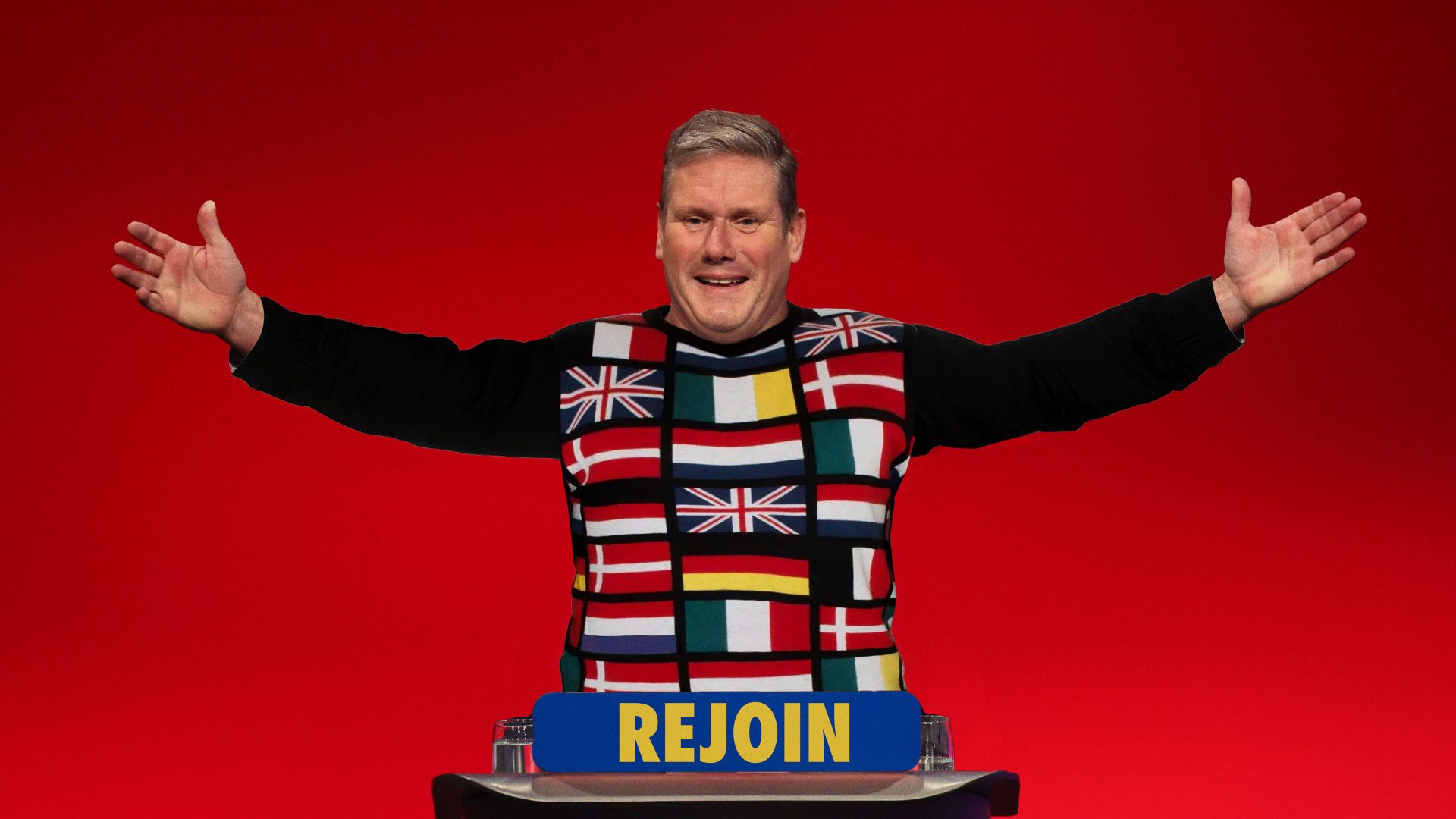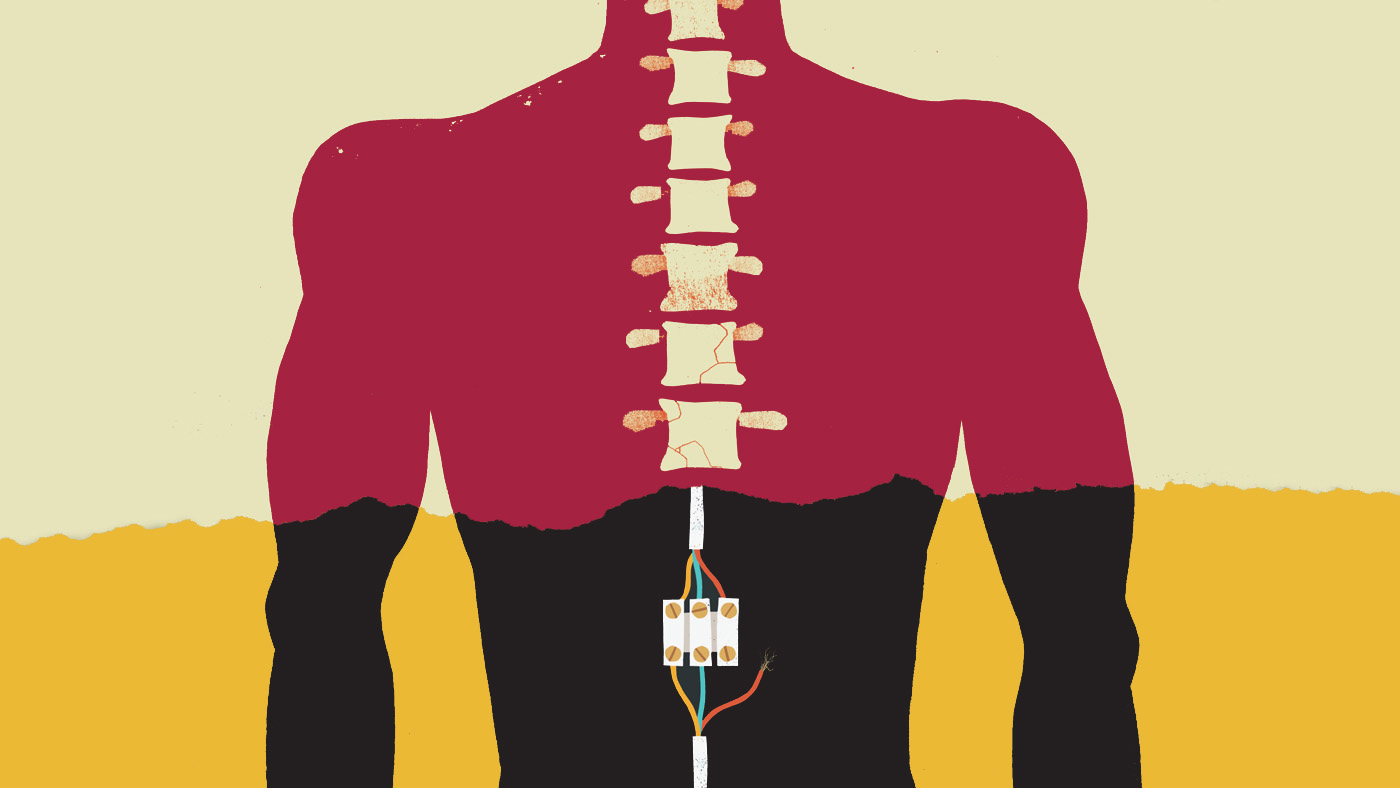The damage done by Brexit is clear. The country cannot reset and grow with this weight on its shoulders. Here’s how the prime minister should announce that joining the single market and customs union will be central to the next Labour manifesto.
Remarks delivered by the Rt Hon Sir Keir Starmer at the Queen Elizabeth II Conference Centre, Westminster, at 11 am on January 6, 2025
Good morning.
Six months ago, outside No 10, I promised “change”, “national renewal” and a “rediscovery of who we are”. I pledged to put “country first, party second”. I meant every word, and still do.
We have made a strong start, fixing the foundations, taking difficult decisions, reaching out on the international stage to partners old and new.
In October, Rachel Reeves delivered her first budget: tough, bold and essential for stability and growth. Wes Streeting has recognised the challenge of mending our broken NHS. That work is under way, and much more besides.
Yet one moment in particular has stayed with me; that day in August when, after the tragic murder of three little girls in Southport, this country was struck by a series of terrible riots.
I was clear, as I said then, this disorder was stoked by right wing thuggery and reckless incitement on social media, and I promised that those who broke the law would be punished swiftly and order restored without delay.
That moment taught me a lesson: a government will always face emergencies, new perils, difficult circumstances. And the job of the prime minister at such moments is to act decisively, without fear or favour.
I believe today we face a national emergency – very different, yes, but demanding the same spirit of resolve and determination.
In 25 days, we mark the fifth anniversary of the UK’s exit from the EU. This landmark has given me cause for thought and reflection. So I want today to speak about the United Kingdom’s relationship with Europe. I want to focus on three questions and explain how, in answering them, I have reached a particular conclusion.
First: the difference between opposition and office, and how the latter changes your perspectives.
Second: the importance of candour in an age disfigured by disinformation and populist lies.
And third: moments when the national interest mandates audacity.
It has been said by previous prime ministers that they wish they had started with all the insight they had acquired by the time they left office. I now know why they said that; in opposition, you talk. In government, you do.
It is the government’s job to act in the national interest, conscious that what political scientist James Pinkerton called “the pulverising forces of modernity” are constantly changing, and that in the face of those forces, agility and pragmatism are more important than doctrine and orthodoxy.
A responsible government must always be looking ahead, averting crisis, and ensuring the next generation has better services, better opportunities, more chances for fulfilment.
Which leads me to my second theme. Populist politics thrives on falsehood, exaggeration and slander. That’s not me. Truth is the foundation of a decent society.
But truth is incomplete without candour. Let me explain. It is often expedient in politics to say nothing, or not enough, about controversial subjects because candour often comes with a political price tag.
As prime minister I have come to understand that the contract between government and public requires me to pay that price if necessary. Which brings me to our relationship with Europe.
Let me speak personally for a moment: as most of you know, my love of Europe is deeply ingrained. I studied European law at university and – God help us – even wrote a book about it.
In 2016, I campaigned for Remain. As shadow Brexit secretary, I fought hard both for a second referendum and a better Brexit deal than the mess the Conservatives delivered.
Last July, at the European Political Community summit at Blenheim, I emphasised my commitment to better relations with Europe in general, and the EU in particular. I spoke of renewing “the bonds of trust and friendship that brighten the fabric of European life”.
At the time, my conclusion, based on hundreds of conversations on the doorstep, was that after eight years the nation was heartily sick of Brexit and wanted to move on.
But this is where candour is so important. Much as we may wish we were finished with Brexit, Brexit is not finished with us.
Brexit looms over, limits and infects everything we try to achieve. It is not a perfectible arrangement. It is a dud arrangement.
The great irony of Brexit is how its effects have been directly contrary to what was promised. Instead of taking back control of immigration, the Conservatives committed us to a chaotic experiment in open borders. Instead of cutting regulation, our businesses were tied up in red tape: jobs lost, ever longer queues at ports, food left to rot before it can get to market; public services struggling to fill crucial vacancies.
According to the British Chambers of Commerce, a third of small and medium-sized exporters have ceased trading with Europe. Worse, the Office for Budget Responsibility calculates that Brexit is reducing our gross domestic product (GDP) by 4%.
A year ago, the cost of leaving the EU was estimated to have already reached £140bn. That’s about three-quarters of the annual NHS budget. By every conceivable metric, Brexit has failed.
For three years now, opinion polls have shown a majority of the public now thinks Brexit was a mistake. Well, opinion polls are only a guide, but they should hardly be ignored.
Let me be crystal clear. I see a future of so much potential in this country, but also huge challenges. The technological revolution. Climate change. Savage inequalities. An ageing population and a younger generation rightly demanding a fair shake. Population mobility on an unprecedented scale. Global insecurity and instability.
We will need more and better statecraft to address these challenges. And – as I have said from the start – we will require significant economic growth.
But here, again, candour is required. President-elect Trump and I already have a good working relationship. Yet the president-elect has made it very clear his economic strategy will involve tariffs and protectionism to an extent that will have an impact upon all our economic fortunes. We must live in the real world. That world is changing, and we in the UK must change with it.
So let me say today, without embarrassment, what politicians say all too seldom: I have changed my mind.
In politics, and politics alone, this is seen as a sign of weakness. In science or business, it is common sense. As John Maynard Keynes put it: “When my information changes, I alter my conclusions”.
Even now, I can see journalists here today frantically messaging their newsdesks with advance warning of “a big U-turn” or a “flip-flop”. And that’s all right. I stand implacably by the freedom of the press to speak and write freely.
Look, I wouldn’t be surprised if one particular newspaper calls me “an enemy of the people”. It’s something of a tradition, isn’t it?
I can also think of a well-known TV presenter – you may not know he moonlights as an MP – who will doubtless explode in fury and declare “enough is enough” and demand I am locked up in the Tower of London. A normal day at the office for Nigel, in other words.
But – in all seriousness – I am not willing to sacrifice the national interest upon the altar of my own political comfort. I entered politics not in search of popularity, but to get things done.
So let me move to the third part of this speech: a broad outline of what I now propose.
I know there are many who would like me to announce today an application to fully rejoin the European Union. That option is indeed open to me.
But this new relationship must be built upon firm foundations. The consent of parliament is essential to any such measures. So too is the approval of our EU partners.
Again, in all candour, the pyrotechnics of the Brexit era weakened confidence in the UK among the 27 members of the EU. Nonetheless, in my contacts with heads of government and the EU Commission it has been made clear to me the door is not slammed shut. The growing pressures – the headwinds of global change I referred to earlier – affect the EU as much as they affect us. We are a G7 nation, the sixth wealthiest on earth, and we bring plenty to the table. The EU is our biggest trading partner, accounting for more than 40% of UK exports.
So – as a first, and considerable step – I will submit the UK’s application to join the European Free Trade Area as a precondition of our eventual entry to the single market and customs union.
This will require a green light from Norway, Iceland, Liechtenstein and Switzerland, and the approval of the EU’s 27 member states. It will not be straightforward; but I believe it can be achieved.
Since exit from the single market and customs union was not what Brexiters promised in 2016 – indeed many said explicitly the UK would stay within these economic alliances – I do not propose to hold a referendum aligned to these changes. Only full membership of the EU would require that public affirmation. And that is not what I am proposing today.
Instead, a mandate for full membership of the single market and customs union will be included in the next Labour manifesto. If the British public do not approve, they will kick us out at the general election: that is democracy.
Naturally, it is open to the opposition to propose a vote of confidence in the government if it so chooses. But I would respectfully urge the Conservative Party – so radically diminished on the parliamentary benches – to think hard before yielding to the knee-jerk politics that has done so much damage in recent years.
Think of the national interest. Think of the responsibility we share, regardless of party, to the country and to the future.
Remember that, of the 650 MPs in the House of Commons, an overwhelming majority support closer ties with the EU. And before you deliver oven-ready soundbites on the supposed perils of freedom of movement within the single market, remember your party’s own dismal record on border management.
To the 52% of Britons who voted for Brexit in good faith, I ask you respectfully to consider the reality that 100% of us are worse off because of it. There is no dishonour in choosing a different path.
The question I pose is this: if we had never been a member of the EU, might we be drawn to membership of the single market now? Might that not seem a very appetising option for a nation of our ambitions, potential and sense of social justice?
I say all this today not in spite of my love of country but because of it. This, I believe, is the patriotic path. The British path.
Thank you.




